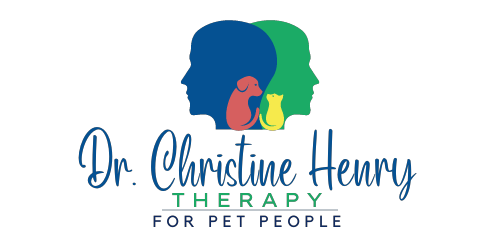Do You Trust Animals More Than People?
Virtual therapy for overthinkers, deep feelers, highly sensitive people, burned-out people pleasers, and neurodivergent adults. With a focus on women, nonbinary, and femme-presenting folks.
Stay in your space, pet in your lap, while we gently untangle what feels heavy, stuck, or unclear.
Licensed Psychologist Dr. Christine Henry offers virtual therapy across Texas, including Houston, Dallas, San Antonio, and Austin. Through PSYPACT, she provides care to clients in over 40 states, including Colorado, Ohio, Indiana, Utah, Wisconsin, and Virginia.
Schedule a free 20-minute video consultation with me to see how I can help navigate anxiety, depression, autism therapy, adhd therapy, burnout, grief counseling, and trauma therapy. Fill out a contact form, and I'll email you to set it up (no phone call required).

Struggling to Connect With People?
You lie awake at night replaying old conversations—“Why did I say that?” “What did they mean by that?”—then rehearsing what you’ll say if it ever comes up again. The next day, you overhear coworkers making plans to hang out after work. They don’t invite you. It stings, even though you know you probably would’ve made an excuse not to go anyway. Thank goodness your pet is waiting at home—no awkward small talk required, just soft fur and the kind of comfort only they seem to know how to give.
You’ve read the books, listened to the podcasts, and done a lot of reflecting but you’re still struggling. Your brain won’t turn off, and overthinking everything is just plain exhausting. Even though you’ve done the work, the past still shows up and messes with the present.
Your mind is always going in a hundred directions, and actually finishing things is way harder than it should be. You’ve tried planners, apps, systems nothing seems to stick.
Asking for help feels hard. You’re the one people turn to, so your needs often take a back seat.
As a highly sensitive person, you feel things deeply not just your stuff, but everyone else’s too. And when you’re already overwhelmed, it can feel like way too much.
You’ve learned to hide parts of yourself. When you’ve shown up fully in the past, it didn’t go so well. You feel different from everyone else, and you’re not sure why.
You avoid conflict like the plague. Keeping the peace usually means pushing down your own needs just to make things easier for everyone else.

People can get so focused on being the person others want them to be that they get lost along the way.
Therapy Can Help
You can finally feel good enough. You can learn to embrace your strengths, acknowledge your accomplishments, and let go of self-doubt.
We can help you understand and let go of your past trauma so you can live in the present.
Together we can help you figure out how to regulate your nervous system and find ways to accommodate your sensory preferences in your day to day life.
We will develop strategies that work with your brain instead of against it.
You can learn who you really are and what you want. It might feel strange or uncomfortable at first, but think about how you would encourage someone else facing similar challenges. Just as you'd support them, it's important to give the same care and attention to yourself.
We will help you start to let people see the real you and stop using so much energy in putting on a mask around others. It can feel nice to be appreciated for who you truly are, rather than the person you believe others want you to be.
You can learn how to set boundaries and be assertive with others.
We can assist you in discovering ways to connect with people who values and embraces the real you.
My Therapy Style
Deep work is important—but it doesn’t have to be heavy every minute. I find that laughter, a quick pop culture nod, or a movie quote can shift the energy, spark a new insight, or help something click. You won’t have to wonder what I’m thinking, I’m open and transparent, and I’ll always share what I’m noticing or thinking.
And if your pet joins us on screen? Even better. I consider them part of the team. They often sense when something’s coming up for you sometimes before you do. A cat butt in the camera is usually my cue that you could use a little extra support.
Services include:
Autism Therapy: Helping neurodivergent individuals embrace their strengths and overcome challenges.
ADHD Therapy: Tailored tools and strategies to help you focus, stay organized, and thrive.
Trauma Therapy: Helping process and heal from difficult experiences, providing a safe space to rebuild trust, regain control, and find inner strength.
Grief Counseling: Compassionate support to navigate loss, process emotions, and discover ways to honor your loved one while moving toward healing.
Highly Sensitive People: Providing tools to manage overwhelm, embrace your sensitivity as a strength, and thrive in a world that can feel overstimulating.
Religious Trauma: Space to unpack harmful experiences, rebuild self-trust, and explore your beliefs or values free from fear or judgment.
Estrangement Therapy: Support for adults navigating the pain, guilt, and uncertainty of stepping back from family relationships. Whether you’re estranged from a parent, sibling, or another family member, we’ll work together to make sense of the past, set boundaries that protect your well-being, and find a way forward without carrying so much shame or self-blame.
Therapy For Therapists: Supportive environment to process challenges, prevent burnout, and prioritize your own well-being while you care for others.
I believe that the key to effective therapy is feeling comfortable with your therapist. To ensure we are a good fit to work together, I offer a free 20-minute consultation for us to connect and discuss your needs. (No phone call needed).
Frequently Asked Questions
-
Although research indicates that weekly therapy sessions are most effective, I recognize that this may not be practical for everyone. I've noticed that some people can get better by going to therapy every other week. Nonetheless, there are situations where weekly therapy is deemed necessary. I don’t offer monthly sessions for new clients, since it doesn’t give us enough momentum to really build the work together.
-
I don’t use a rigid formula. I pull from attachment theory, polyvagal theory, narrative therapy, psychodynamic ideas, and interpersonal neurobiology and sometimes a sprinkle of CBT if it’s helpful. Everything is through a neurodivergent-affirming lens, which means I’m not here to “fix” you. I’m here to help you understand yourself more deeply and create a life that works with your brain and nervous system.
-
I’ve been a therapist for over 20 years. I finished my master’s in 2002 and later my Ph.D. in 2008, both from Purdue. Since then, I’ve had the privilege of sitting with people through grief, burnout, big transitions, and all the messy in-between parts of life. This work has been part of me for a long time, and I still feel grateful every day to do it.
-
We’ll hit the highlights and milestones from your past, but we won’t get lost there. The focus will be on what’s happening for you right now, what’s getting in the way, what feels heavy, and what you want to be different. From the start, we’ll begin connecting the dots between your history and what’s showing up today, so therapy feels useful and relevant from day one.
-
Well…if you’re asking and you truly don’t know, chances are you probably aren’t. (Lol.) Pet people usually just know they’re the ones who light up around animals, feel comfort in their presence, and can’t imagine life without them. If you’ve ever called your pet your “baby,” rearranged your schedule around their needs, or felt like they understand you better than most people, you’re definitely a pet person.
-
It’s simple. Just fill out the contact form the on my site and I’ll email you to set up a free 20-minute video consultation, no phone call required. We’ll use that time to talk about what you’re looking for, answer any questions you have, and see if it feels like a good fit. If it does, we’ll schedule your first session from there.
-
I don't take insurance directly, but I can give you a 'superbill' for records. If your insurance covers out-of-network services, you can send it to them to see if you can get reimbursed.
Want to learn more about how I work with adult ADHD, autism, highly sensitive people, complex trauma, or religious trauma? Click the buttons below for details.
Specialties
-

Adult ADHD or Autism Therapy
Identified as ADHD or autistic later in life? Gain insights to life, relationships and methods for daily living with therapy.
-

Grief Therapy
Explore ways go on living when someone you loves dies. Learn to cope with grief, loss and the various emotions you feel.
-

Trauma Therapy
Learn how to heal from trauma and PTSD, open up about your past, accept support, and trust others.
-

Therapy for the Highly Sensitive Person
Explore what it means to be a highly sensitive person (HSP) and develop strategies specifically crafted for you.
-

Religious Trauma Therapy
Therapy for those who have experienced spiritual abuse. Support, safety and freedom are possible.
-

Therapy For Therapists
Therapy for therapists to process their own emotional issues. You deserve to live a fulfilling and happy life as well.
-

Individual Therapy
A place to feel acceptance as you to process your thoughts and feelings without judgment.
-

Group Therapy
Group therapy is where individuals come together to support one another through similar life struggles and find new ways of coping.
-

Biofeedback Therapy
Connect with your body, understand triggers and learn how to regulate your emotions.


